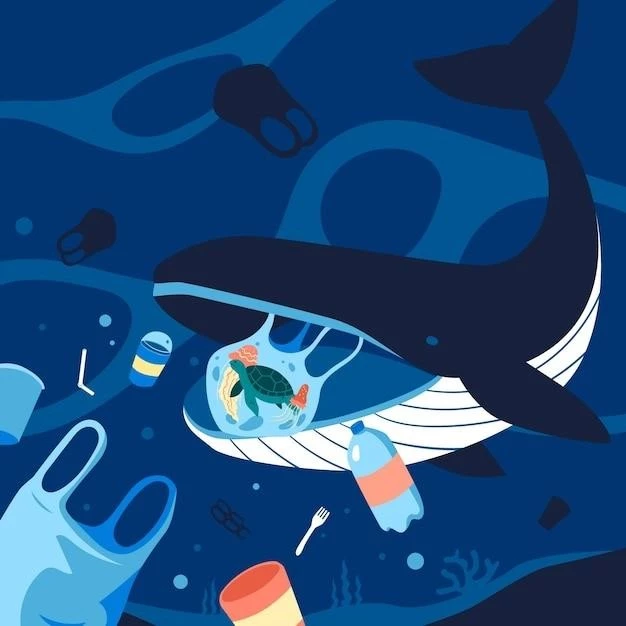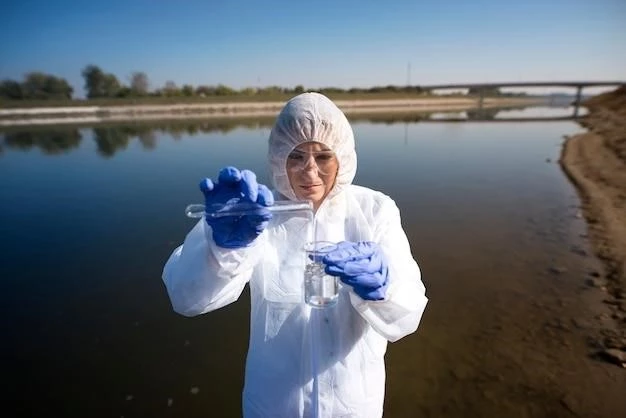Disease ⎻ Ichthyoallyeinotoxism
Overview of Ichthyoallyeinotoxism
Ichthyoallyeinotoxism is a condition caused by the consumption of marine organisms contaminated with hallucinogenic marine toxins. These toxins, known as ichthyoallyeinotoxins, can lead to hallucinations and other neurological symptoms. It is essential to be cautious when consuming seafood, especially if sourced from unknown or unregulated suppliers.
Marine toxins responsible for ichthyoallyeinotoxism are potent neurotoxins that can cause severe intoxication. The presence of these toxins in marine food poses a significant risk to human health. Awareness of the risks associated with marine toxins and the symptoms of intoxication is crucial to prevent ichthyoallyeinotoxism.
Understanding the nature of marine toxins and how they affect the human body is essential to prevent incidents of marine food poisoning. By being informed about the potential risks and symptoms of ichthyoallyeinotoxism, individuals can make better-informed choices when consuming seafood. Stay informed and aware of the dangers posed by marine toxins to safeguard your health.

Understanding Marine Toxins
Marine toxins are natural substances produced by certain species of marine organisms, such as algae, bacteria, and plankton, that can contaminate seafood and cause various forms of marine food poisoning. These toxins can have different effects on the human body, including neurotoxicity and hallucinogenic properties.
One type of marine toxin, known as ichthyoallyeinotoxins, is responsible for inducing hallucinogenic effects in individuals who consume contaminated marine organisms. These toxins can lead to altered sensory perceptions, vivid hallucinations, and other neurological symptoms.
It is important to be aware of the presence of marine toxins in seafood and the potential risks associated with their consumption. By understanding the nature of marine toxins and how they can affect human health, individuals can make informed decisions when purchasing and consuming marine products. Stay informed about marine toxins to protect yourself and your loved ones from marine food poisoning incidents.
Hallucinogenic Effects of Marine Toxins
Marine toxins, specifically ichthyoallyeinotoxins, can produce potent hallucinogenic effects when ingested through contaminated seafood. These toxins target the central nervous system, leading to alterations in perception, mood, and cognitive function. It is crucial to be aware of the hallucinogenic properties of marine toxins and the serious consequences they can have on human health.
Individuals affected by ichthyoallyeinotoxins may experience intense hallucinations, visual distortions, and sensory abnormalities. These hallucinogenic effects can be distressing and disorienting, potentially leading to panic and anxiety. Understanding the hallucinogenic effects of marine toxins is essential in recognizing the symptoms of ichthyoallyeinotoxism and seeking prompt medical attention.
It is advisable to avoid consuming seafood from uncertain sources or during algal blooms, as these conditions increase the risk of marine toxin contamination. By staying informed about the hallucinogenic effects of marine toxins and practicing caution when consuming marine food, you can reduce the likelihood of experiencing ichthyoallyeinotoxism and its associated symptoms.
Symptoms of Ichthyoallyeinotoxism
The symptoms of ichthyoallyeinotoxism, resulting from the ingestion of marine organisms contaminated with hallucinogenic toxins, can vary in intensity and duration. Common symptoms include hallucinations, paranoia, altered sensory perceptions, and confusion. Individuals affected by ichthyoallyeinotoxins may also experience gastrointestinal distress, such as nausea, vomiting, and diarrhea.
Other neurological manifestations of ichthyoallyeinotoxism may include anxiety, dizziness, headache, and muscle weakness. Severe cases of intoxication can lead to seizures, respiratory difficulties, and cardiovascular complications. It is crucial to recognize the symptoms of ichthyoallyeinotoxism promptly and seek medical assistance to prevent further health issues.
If you or someone you know experiences any of these symptoms after consuming seafood, especially if obtained from unfamiliar or unregulated sources, it is essential to seek medical help immediately. Early diagnosis and treatment are essential in managing the effects of marine toxins and promoting recovery. Stay vigilant for symptoms of ichthyoallyeinotoxism and prioritize your health and well-being.
Diagnosis and Treatment of Ichthyoallyeinotoxism
Diagnosing ichthyoallyeinotoxism involves a thorough evaluation of the individual’s symptoms, dietary history, and potential exposure to contaminated marine organisms. Healthcare providers may conduct physical examinations, laboratory tests, and neurological assessments to confirm the presence of marine toxins in the body.
Once diagnosed, the treatment of ichthyoallyeinotoxism focuses on managing symptoms and supporting the individual’s recovery; Medical interventions may include intravenous fluids to prevent dehydration, antiemetic medications to relieve nausea and vomiting, and medications to address neurological effects such as hallucinations and seizures.
It is essential to seek medical attention promptly if you suspect ichthyoallyeinotoxism or have consumed seafood associated with toxin contamination. Do not hesitate to contact healthcare professionals for guidance and treatment. Early intervention can help alleviate symptoms, prevent complications, and promote a faster recovery from marine food poisoning. Prioritize your well-being and follow medical advice to ensure a successful outcome.
Prevention of Ichthyoallyeinotoxism
Preventing ichthyoallyeinotoxism primarily involves awareness, caution, and safe food practices when consuming marine products. To reduce the risk of intoxication from marine toxins, it is advisable to purchase seafood from reputable and regulated suppliers known for adhering to food safety standards.
When preparing seafood, ensure proper storage, handling, and cooking to eliminate any potential toxins that may be present. Avoid consuming raw or undercooked seafood, as inadequate cooking methods may not destroy marine toxins effectively. Additionally, stay informed about local advisories regarding seafood consumption and shellfish harvesting to avoid contaminated marine organisms.
Regularly educate yourself and your family members about the risks of marine toxins and the symptoms of ichthyoallyeinotoxism. By promoting awareness and practicing safe food habits, you can minimize the likelihood of experiencing marine food poisoning incidents. Take proactive steps to prevent ichthyoallyeinotoxism and prioritize the safety of your diet and overall well-being.
Public Awareness and Education
Enhancing public awareness and education about the risks of ichthyoallyeinotoxism is crucial in preventing marine food poisoning incidents. Community outreach programs, educational campaigns, and informational materials can help raise awareness about the dangers of consuming contaminated seafood and the symptoms of toxin exposure.
By educating the public about the sources of marine toxins, safe seafood consumption practices, and the importance of sourcing seafood from reputable suppliers, individuals can make informed decisions regarding their dietary choices. Public health authorities and organizations play a vital role in disseminating information and promoting best practices to reduce the prevalence of ichthyoallyeinotoxism.
Encouraging open communication between healthcare providers, seafood vendors, and consumers can further contribute to a collective effort in safeguarding public health. Stay informed, share knowledge within your community, and advocate for safe seafood practices to protect yourself and others from the risks associated with marine toxins. Together, we can create a safer environment for seafood consumption and promote wellness for all.
Conclusion
In conclusion, ichthyoallyeinotoxism is a serious condition caused by the ingestion of marine organisms contaminated with hallucinogenic toxins. The hallucinogenic effects of marine toxins can lead to a range of neurological symptoms, posing risks to human health. Understanding the risks associated with marine toxins and practicing safe seafood consumption habits are essential in preventing ichthyoallyeinotoxism.
Early recognition of symptoms, prompt medical intervention, and a focus on prevention through education and awareness can help mitigate the impact of marine food poisoning incidents. By prioritizing food safety, sourcing seafood responsibly, and staying informed about the dangers of marine toxins, individuals can reduce their risk of ichthyoallyeinotoxism and promote overall well-being.
It is vital for healthcare professionals, public health authorities, and the general public to collaborate in promoting a safer food environment and advocating for healthy seafood practices. Together, we can work towards a future where ichthyoallyeinotoxism is a rare occurrence, ensuring that everyone can enjoy seafood without compromising their health. Stay vigilant, stay informed, and prioritize safe seafood consumption for a healthier tomorrow.
